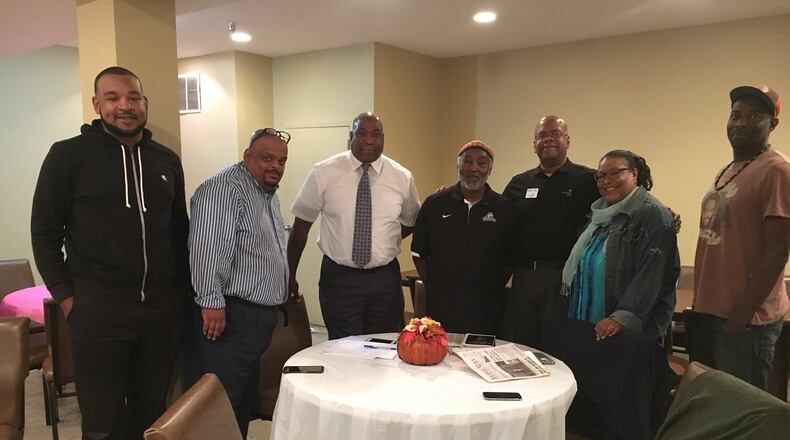“We wanted everybody in the community to come together tonight and be able to express themselves and get things off their chests so to speak in order to create a dialogue about issues affecting our community,” he explained.
Celeste Davis, CEO of 3 R Development Inc. and a community activist, said she wanted to “keep it real” during the discussion as she voiced her concerns regarding education and responsibility for black people living in Middletown.
“I teach a class called family poverty, and I have to say that we have lost a since of being a collaborative in our community,” she said. “We are not passing along what we grew up with to our children.”
Davis gave examples of how families in poorer neighborhood used to share resources from food to talents such as music, math and other skills with each other.
She also said that people in the African American community need to become more vigilant against the violence that has permeated many poor neighborhoods.
Vincent Harris agreed with Davis’ assessment, and he felt that there should be more of an urgency to address the problems of lack of respect, violence and education issues from people within the African American community.
“Most people in my day and age were taught to give respect to elders in the community,” Harris said. “Now we have a day and age of kids raising kids, so now we have a group of kids growing up with a false sense of entitlement.”
He added, “I recently dealt with a white young man that had a toy gun, and I was trying to teach him that he could end up causing a situation where or somebody could get hurt. Some of the black kids that heard our discussion were laughing. None of them were listening to the message.”
Harris noted that there are too many young black children entering school who are unable to read and write.
Bandele Yobachi-El said that is a growing issue, adding that “parents are thinking school is a daycare and the teachers are supposed to raise their kids … Our parents taught us how to read and write. But now parents are having trouble doing this because they can’t read and write.”
William “Kip” Moore and Clarence Heard said that responsibility and taking control of what goes on in the community will be a solid first step towards improving the quality of life.
“There are ways we can go about improving things before we start talking about funding and resources.,” Brown said. “We have to start talking about how to improve our families and relationships within our community.”
Heard wondered if others would join in trying to improve mentorship and respect with the young people.
“We have to start letting youth know that they are somebody and that we care about them,” he said.
Abdul Shakur felt that family and fatherhood are keys to helping improve the plight of African Americans in Middletown and Butler County.
“There is a culture now where too many kids are being raised in fatherless homes,” Shakur said. “We need to look at why their are so many absent fathers and why the infant mortality rate is so high in our community… We need to pick up our local newspaper and be in tune with the news in our community.”
Jason Hightower said he believes many of the problems from poverty to education along with parenting can be traced to systemic racism and a lack of resources making their way to disadvantaged communities.
“The majority of everything we are talking about has come about by design, and we can’t leave put politics and political trends,” he said. “When we talk about the issue of education, we can’t forget that the government cut Head Start programs. If these resources aren’t provided to us, how are we going to get programs started?”
Hightower added that black owned businesses have vanished from Middletown and job opportunities are scarce.
“We can sit here and talk to we’re blue in the face about respect and this and that, but it all comes back to getting resources or a lack of resources to fixing most of these problems,” he said.
About the Author
